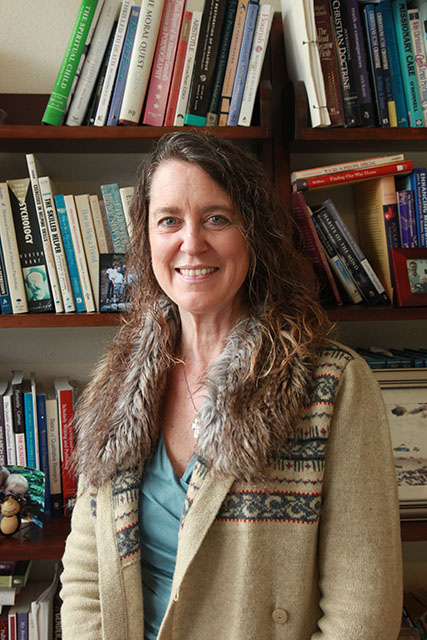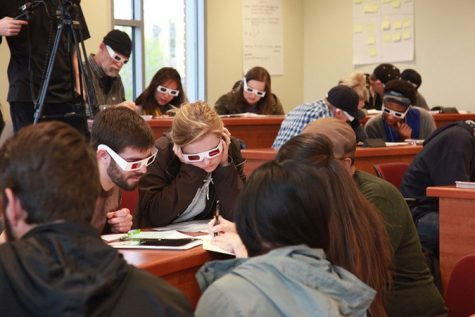Suffering demands study
Psychology professor Liz Hall exposes the truth behind Christian suffering.
February 21, 2017
Pain changes people like nothing else does. In psychology professor Liz Hall’s perspective, pain offers an opportunity for people to assess the world in which they live from a perspective of profound discontent.
A profound discontent
Receiving a grant from the Council of Christian Colleges and Universities, Hall and a team of professors from around the country will spend the next chapter of their lives researching in depth the effect suffering has on the Christian walk — for better or worse. Their work focuses heavily on a theory book by psychologists Crystal Park and Juliane Fenster called “Stress-Related Growth.”
Hall explained the catalyst for her research and interest in the topic of suffering began with a phone call. Years ago, the planner for a conference on the movements of the Holy Spirit contacted her and requested she be one of the keynote speakers on the topic of suffering. The conference was putting together a book to sum up the topics covered therein, and she was to write one on suffering. Then things took a turn.
“In early December of 2013, I went to get my annual mammogram and was diagnosed with breast cancer. I immediately thought to myself, ‘God seems to really want me to write this chapter from a different perspective,’” Hall said. “It was a full year of treatment: three surgeries, five months of chemotherapy, two months of radiation — a really difficult year. And the whole year, I had this chapter in the back of my mind. As different things would come up I would jot down notes.”
Meaning out of suffering
Her experience with breast cancer led to her researching different types of cancer through the lens of suffering in the Christian life. She interviewed 30 people, all of whom had some type of cancer, and asked them how suffering has led them to find a new kind of meaning in life. She then chose a team of people to research the topic on an academic level, with the help of an academic grant from the CCCU.
“It was a competitive process. We submitted a proposal and a committee looked at the different proposals and chose ours to fund,” Hall said. “One of [the team members] is Jason McMartin, and he’s on faculty here… I thought about all the people I knew in the world of psychology at other CCCU institutions and the person that came to mind was Dr. Jamie Aten, who does work largely in the area of disaster.”
Jamie Aten, associate professor of psychology at Wheaton college, now has the capacity to practically apply his studies in disaster to the concept of suffering. As the two normally go hand-in-hand, the challenge with joining the team was answering the primary question: what does the process of meaning-making through suffering look like for Christians?
“We did a study not too long ago that came out, where we found spiritual meaning-making ended up buffering the negative effects of resource loss and decreasing PTSD. So people who were able to engage in spiritual meaning-making were more resilient early on after a disaster. It helps protect them from PTSD symptoms,” Aten said in a phone interview.
Delving into pain
Three out of the four people on Hall’s team have had some form of cancer. To Hall and Aten, this study hits home very practically, and Aten admits to a slight moment of doubt on whether he felt mentally ready to partake in delving back into the pain. For both, their own meaning-making took place, and continues to take place to this day.
In Park and Fenster’s analytical work on meaning-making, they articulate how grief and tragedy — by their very nature — can lead people to places of growth. In essence, suffering can lead to newfound purpose, but with a cost.
Park and Fenster endeavor to scientifically prove how bad experiences can positively change an individual’s life, and they succeed in showing the benefits of personal awareness and hope in some form of greater being. Hall and her team would call that faith.







